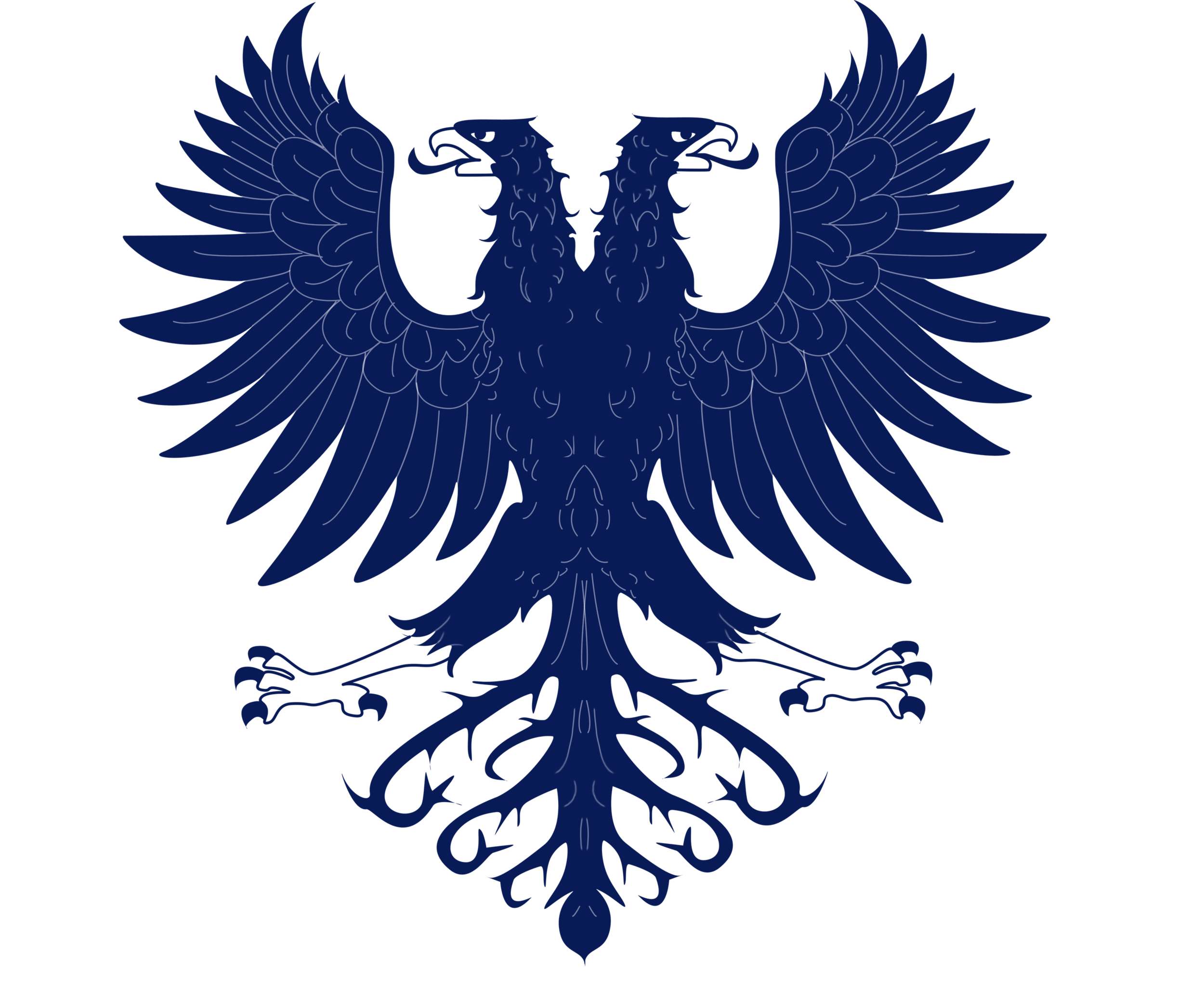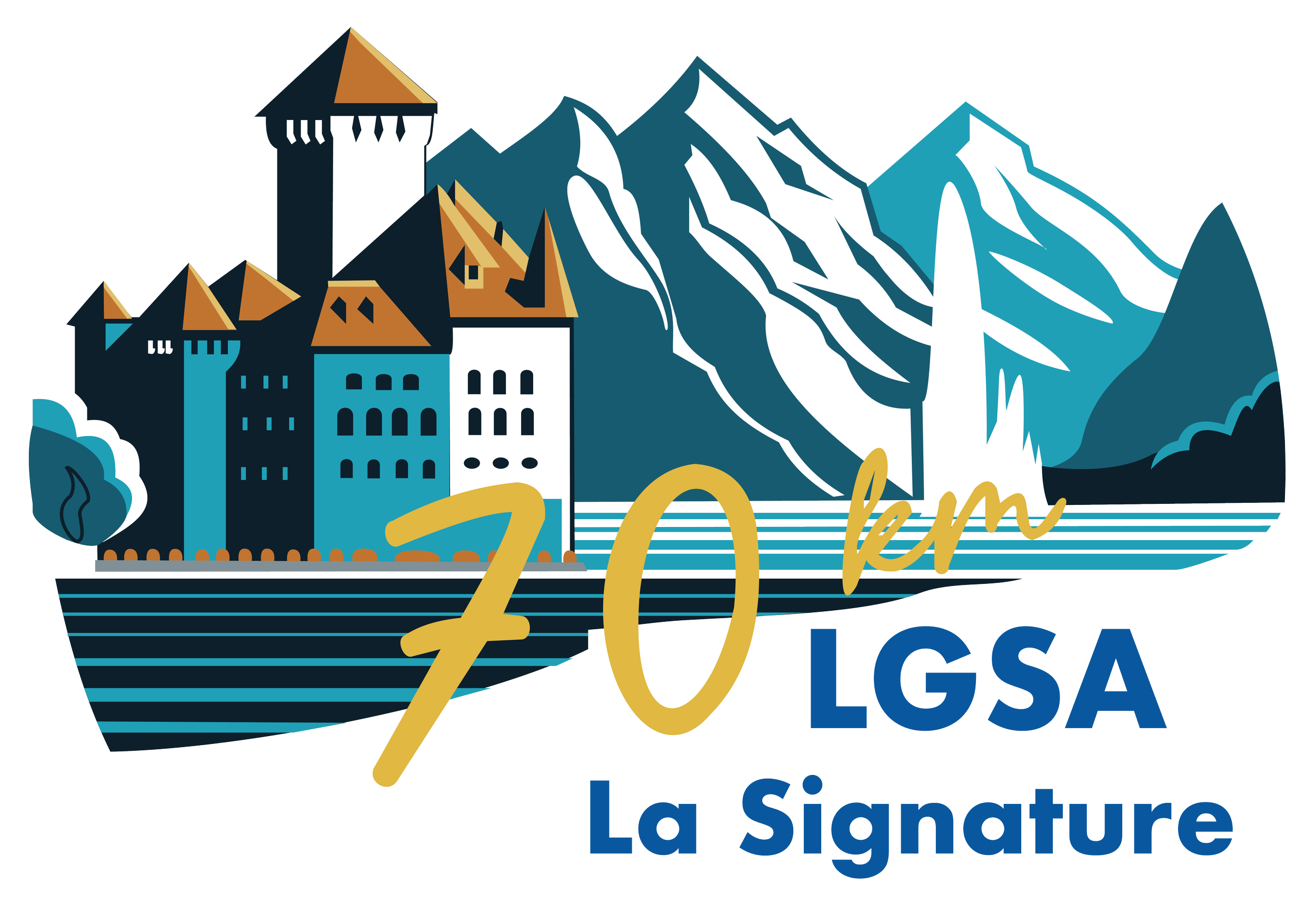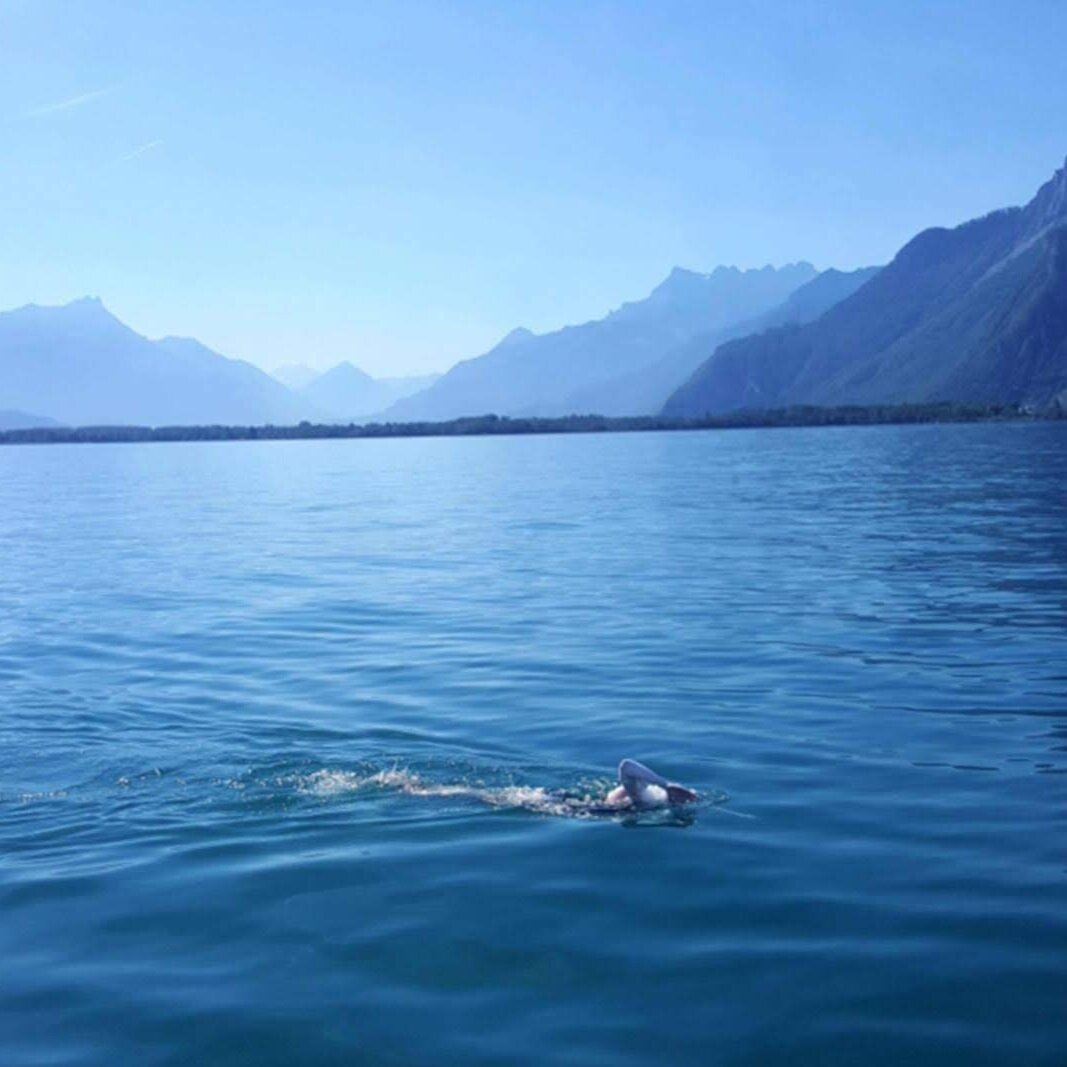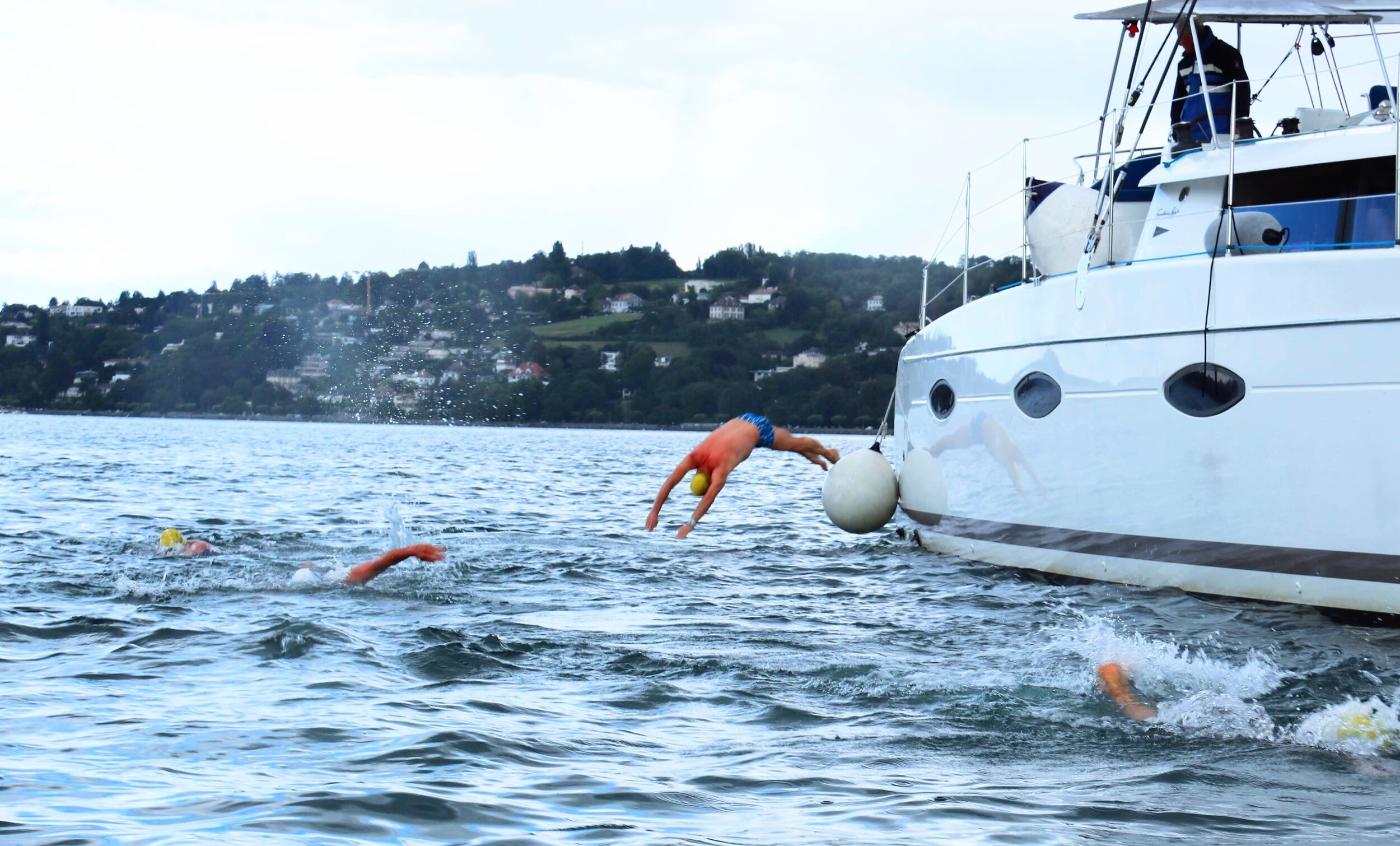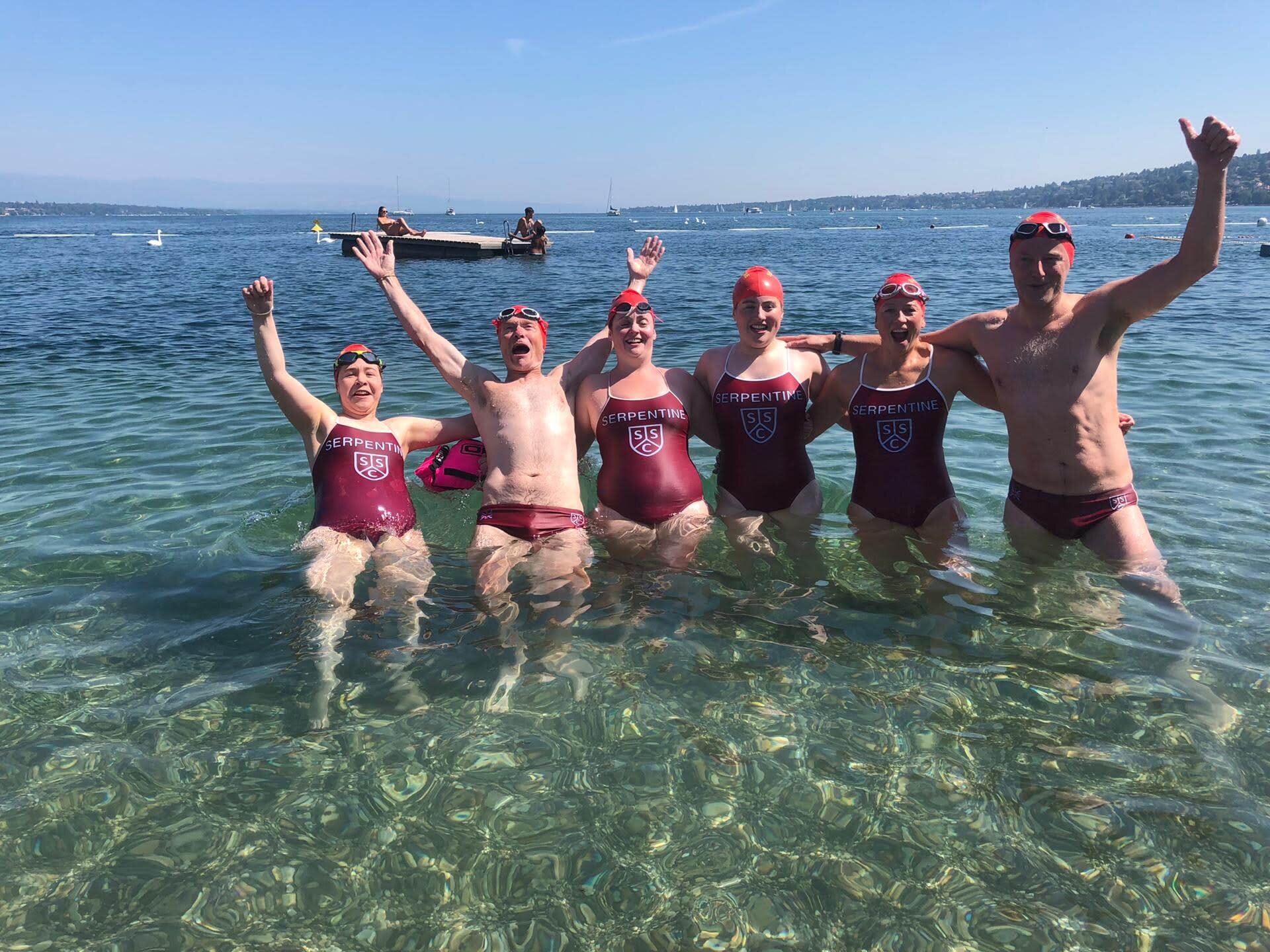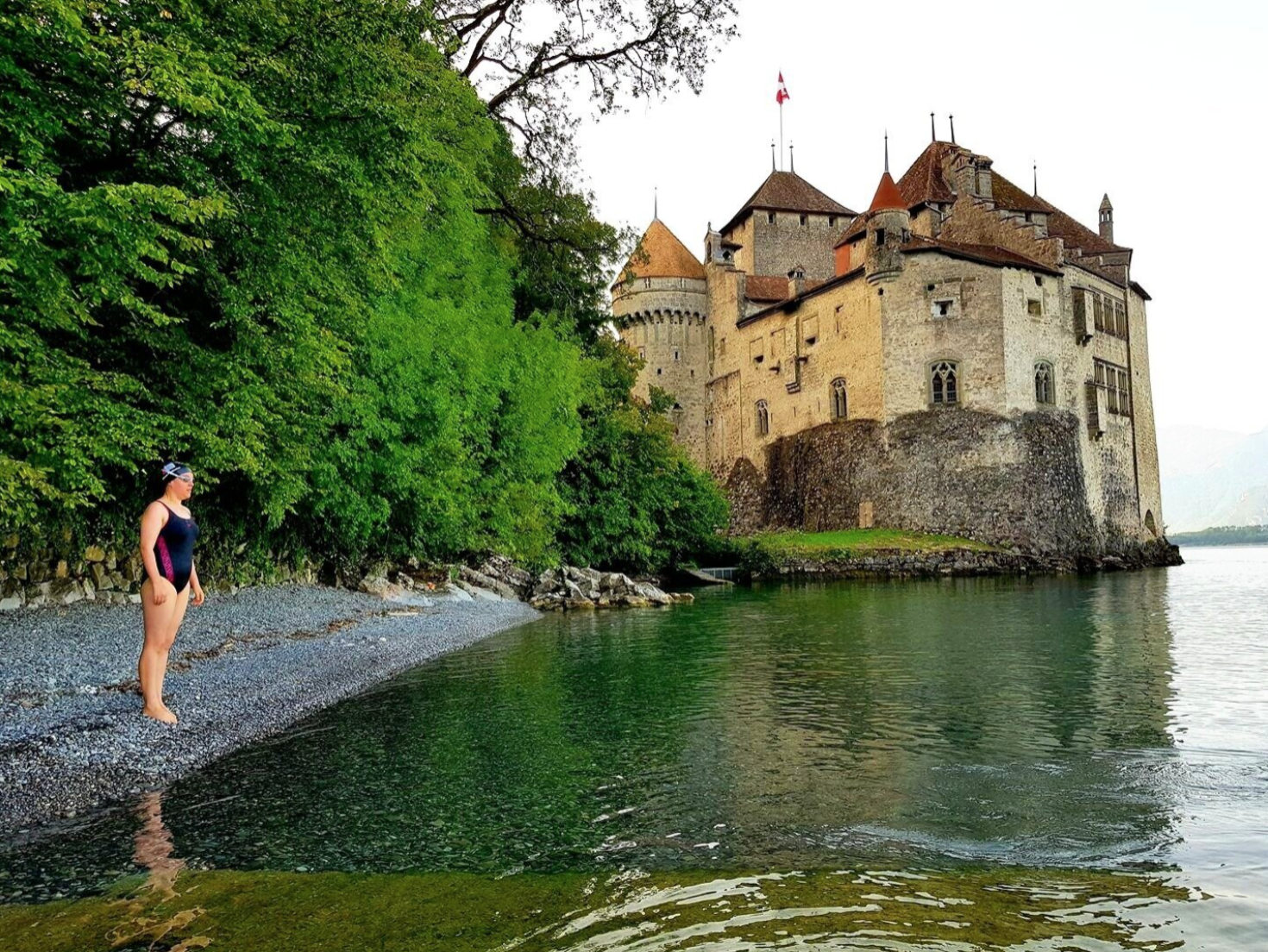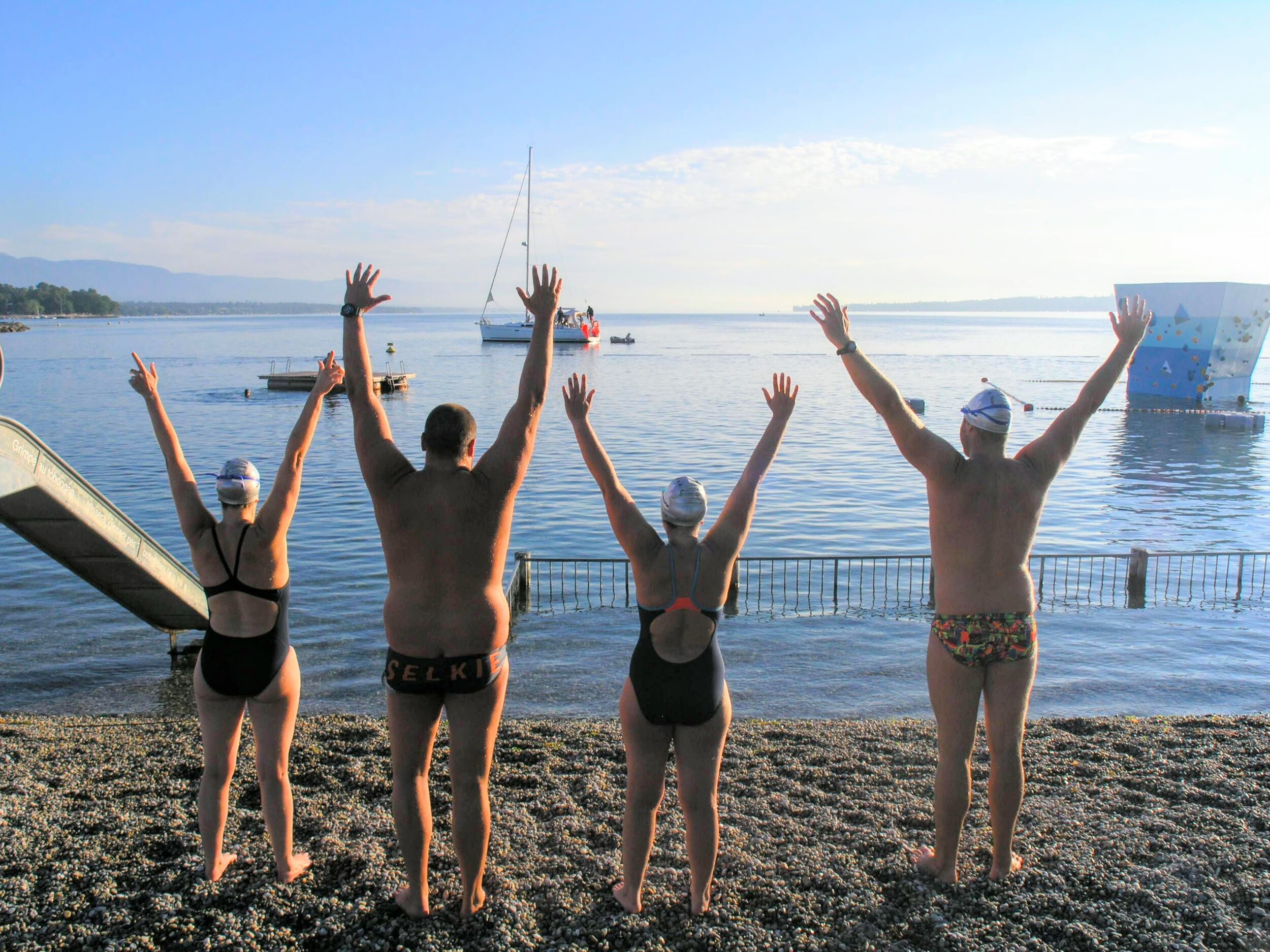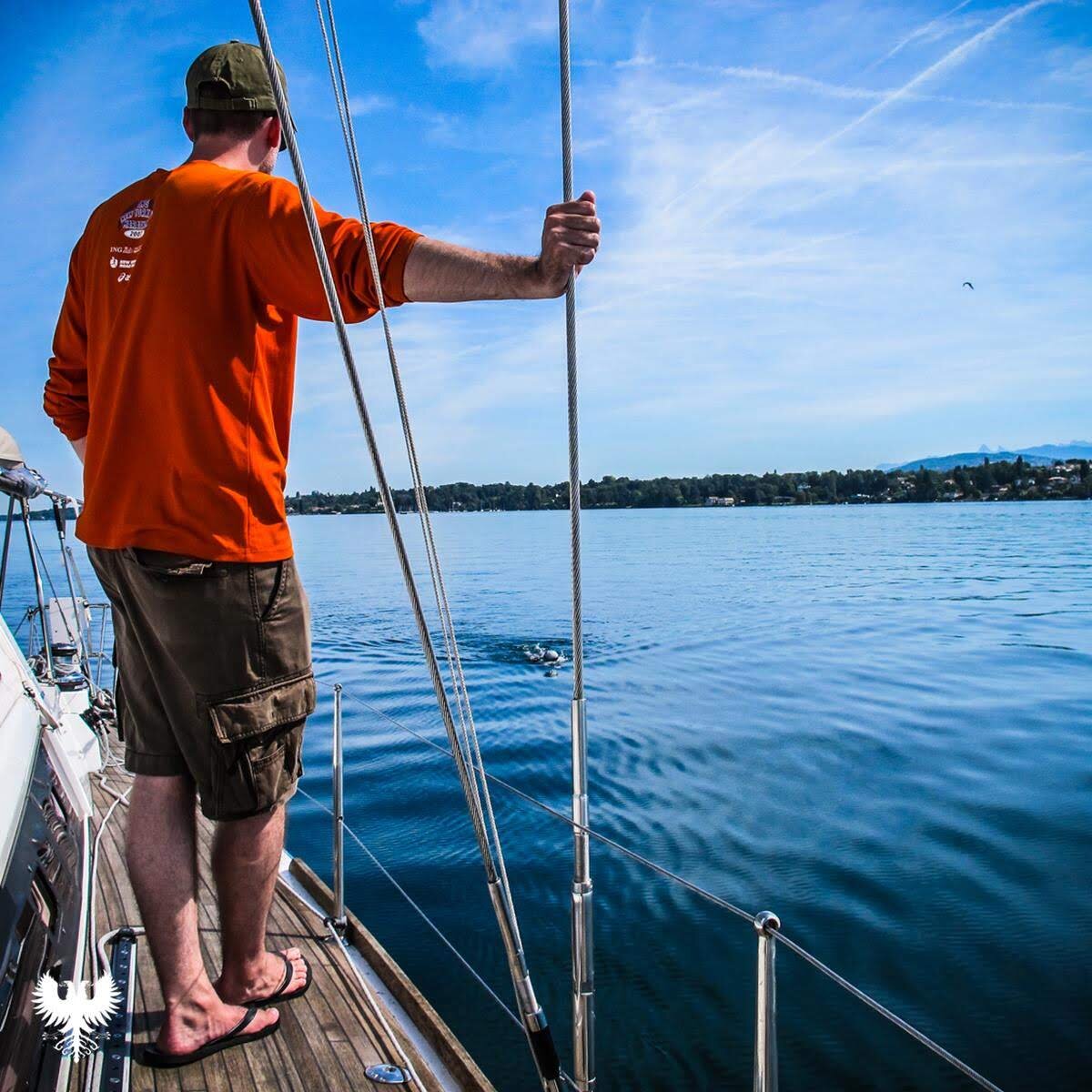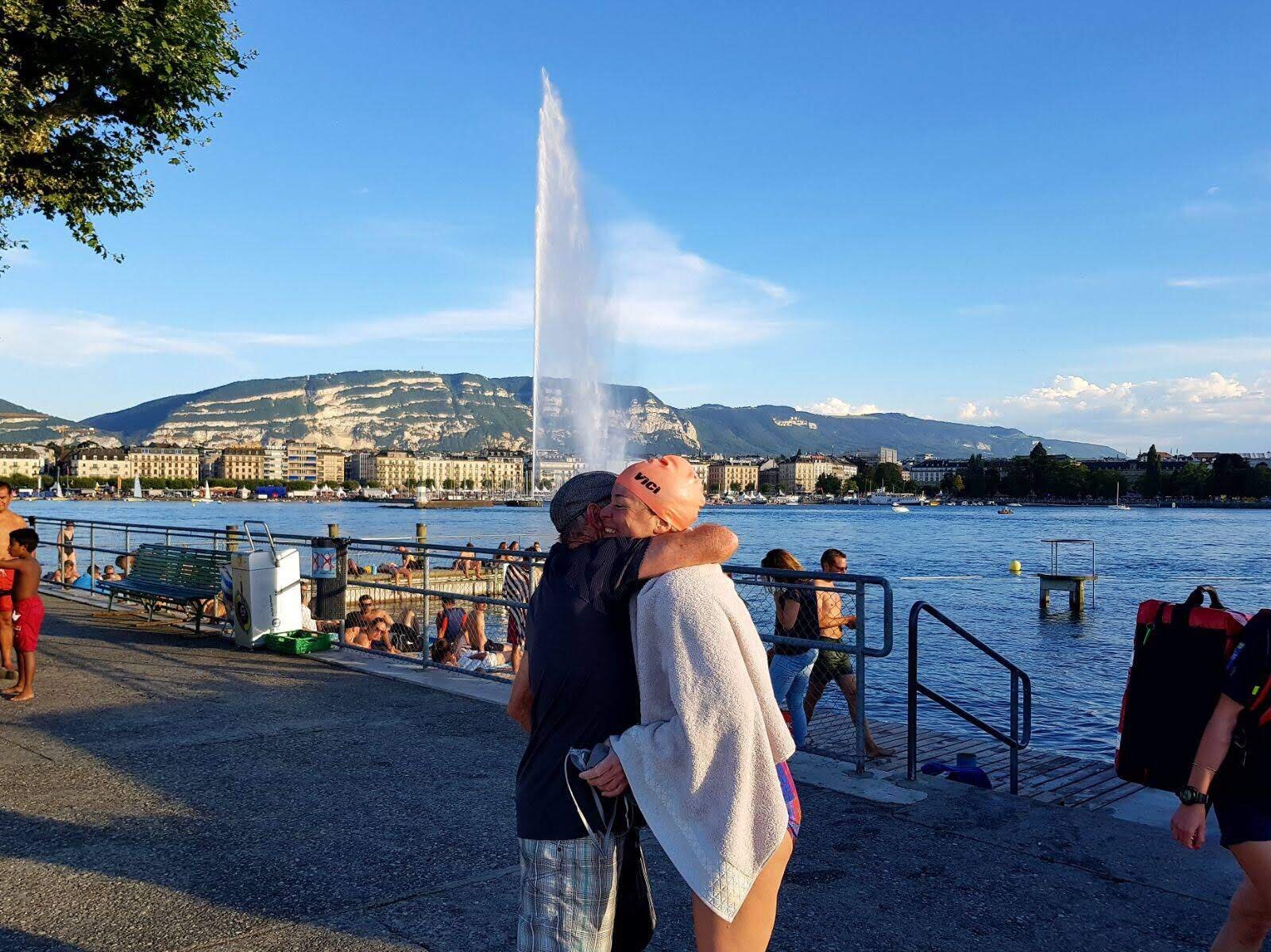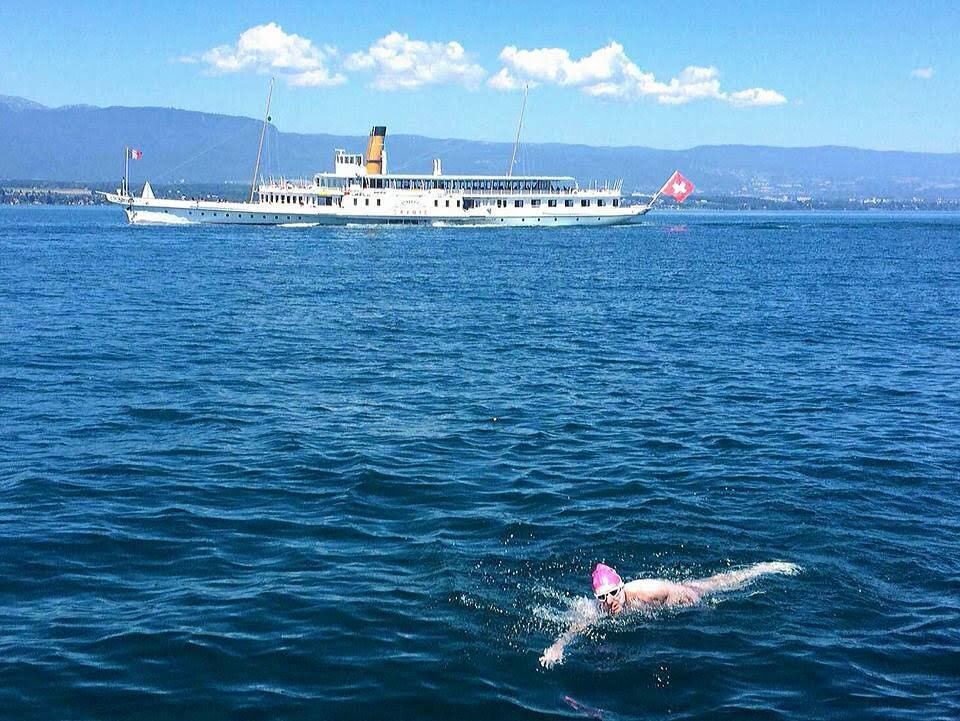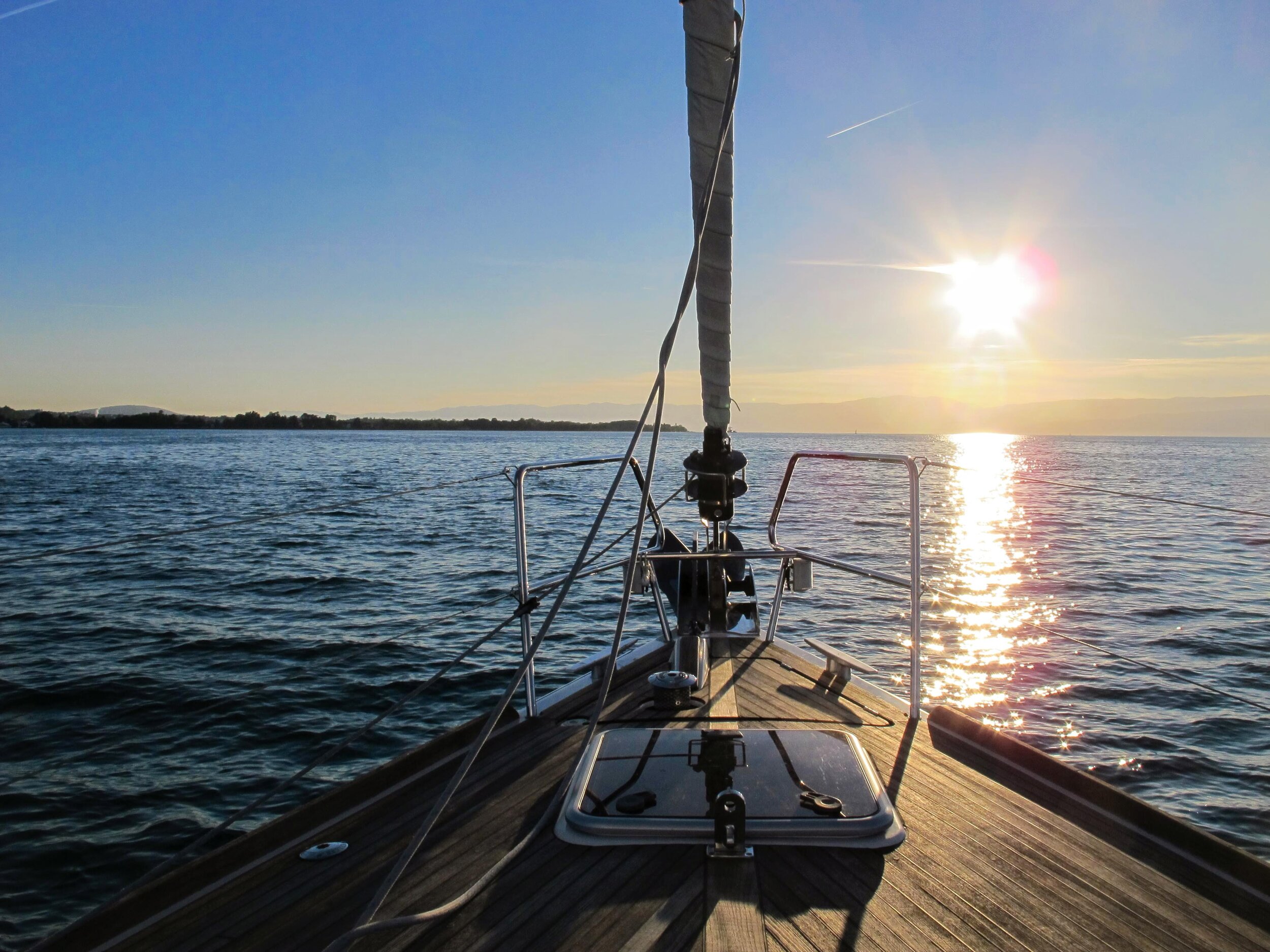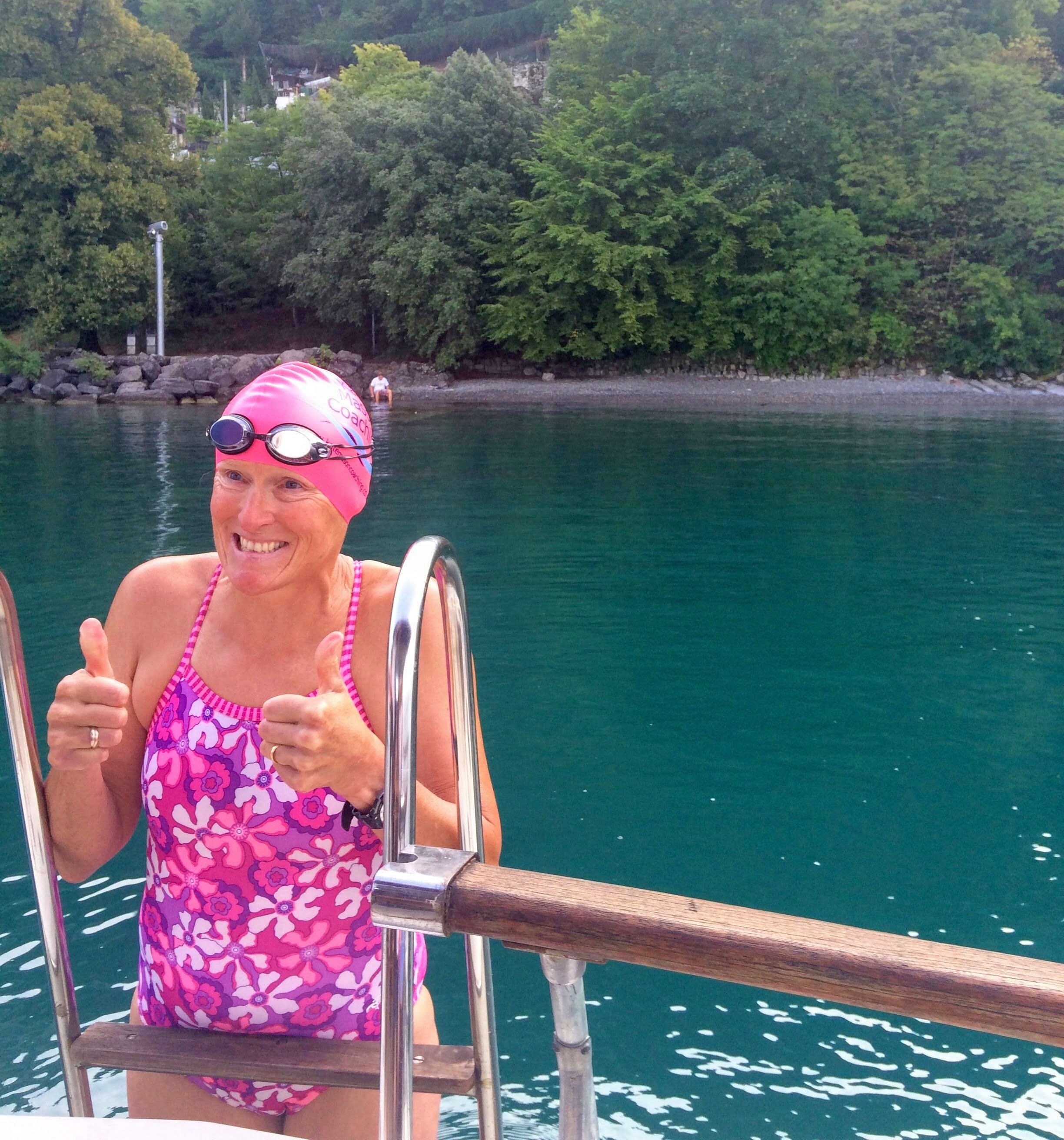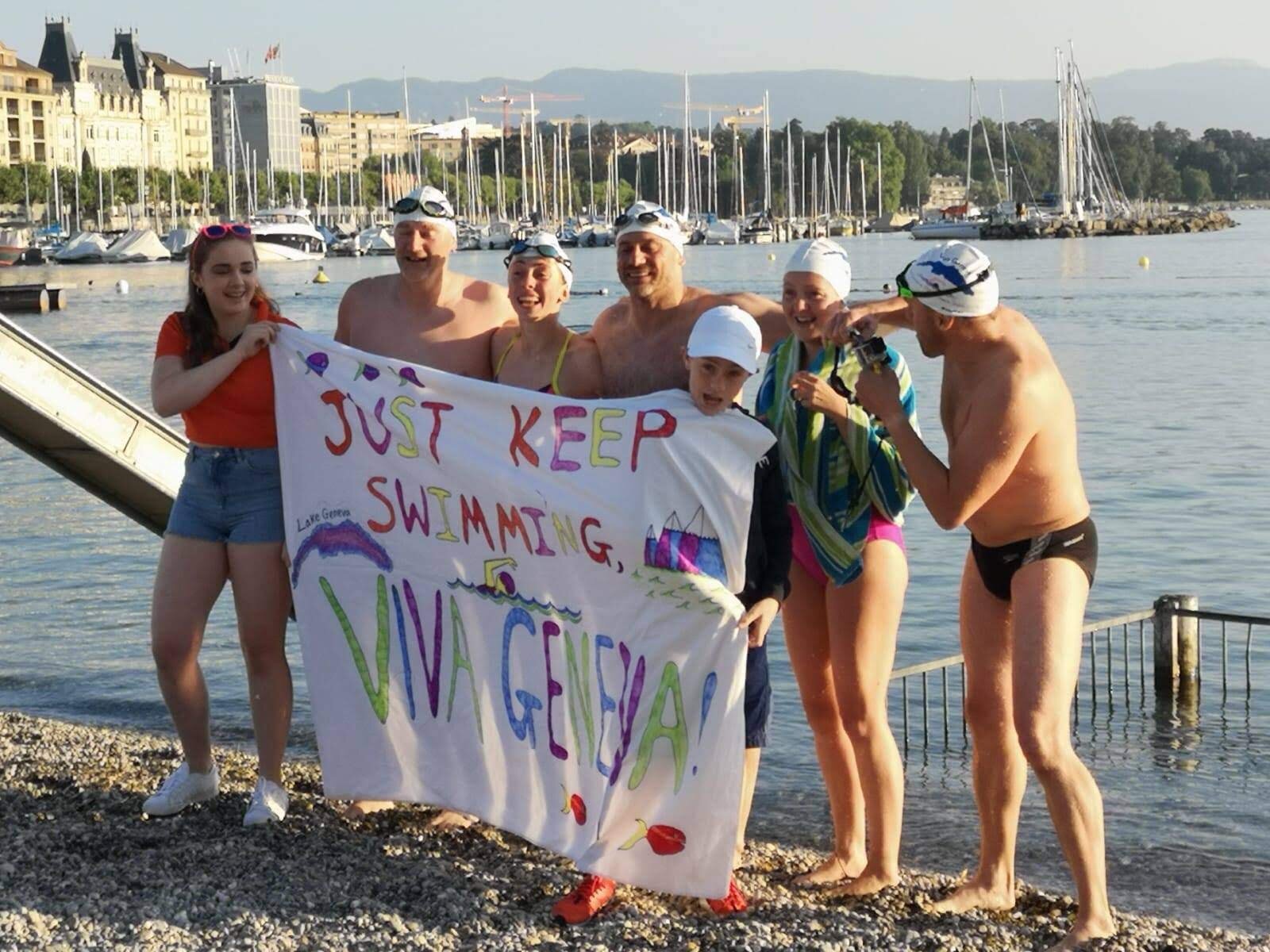The Ultimate Trophy Swim Across Lake Geneva
The Signature, also known as 'The Ultimate Trophy Swim', traverses the length of Lake Geneva from Chillon Castle in Veytaux to Bains des Pâquis in Geneva. At approximately 70km it is twice as long as the English Channel and made up entirely of fresh water flowing directly from the stunning alpine scenery that surrounds it. This swim is the ultimate challenge and a considered by many to be one of the toughest open water swims around.
Signature Swim Route Across Lake Geneva
Click the image below to enlarge.
How to attempt a swim across Lake Geneva.
Those swimmers who wish to swim across Lake Geneva may complete several steps with the LGSA before they dive in swimming. It is important to be honest about your own abilities and to be aware of the time, effort and training necessary to make an attempt. Please make sure to read all the information here thoroughly before proceeding with your booking. A few key points to remember
Remember to confirm when and where to meet your escort boat. Typically swims begin early in the morning and are completed in the afternoon of the following day.
Become familiar with what the LGSA requires of swimmers and please read the LGSA rules and note the application deadlines.
Once you believe you are ready to make an attempt you should
Choose your dates. Make sure to book your preferred dates as early as possible (usually a year in advance and no later than the 31st of March in the year of your swim), to ensure you secure the dates you want. Bookings must be made for the entire swim window. A specific day cannot be selected. Your swim may take place at any point during this window, depending on the weather and lake conditions. Remember to be prepared and remain flexible, ensuring that you are available to swim at any point during your swim window.
Secure your dates. It is necessary to agree on the terms and conditions and pay a non-refundable deposit to secure your dates.
Complete your paperwork. Upon reservation you will be instructed to complete your Swimmer Information via our online form. You will also download the LGSA Medical and Self-Assessment Swim forms, which must both be completed after the 1st of January in the year of your swim, and at least two weeks before the start of your swim window. Please note the LGSA cannot accept any other medical forms except our own (e.g. CSA or CS&PF) although most doctors are happy to sign off more than one form for different swims during one visit.
Deadlines.
Deposit: due upon booking (usually a year in advance and no later than the 31st of March in the year of your swim).
Remaining balance: due within 90 days of the deposit, or before the 30th of April in the year of your swim (whichever is sooner).
All fees paid to the LGSA on or after the 31st of January in the year of your swim cannot be transferred, deferred or refunded. In the case of fees paid to the LGSA before the 31st of January in the year of your swim, the LGSA will retain only the deposit.
Swimmer Information: as soon as possible and at least one month before the start of your swim window.
LGSA Medical and Self-Assessment Swim forms: after the 1st of January in the year of your swim and at least two weeks before the start of your swim window.
If you cannot meet these deadlines, then you must make contact with the office well in advance of the above dates to see if your registration can be extended. Any additional paperwork, such as a change of team members and paperwork corrections etc, may attract an additional admin fee and there is no guarantee that this paperwork can be completed on time. Your LGSA registration could be cancelled if it is not completed by the deadlines above, so make sure you are not late!
Self-Assessment Swims. All Signature swim attempts (or similar) require a ratified Self-Assessment Swim as detailed below.
For a solo attempt: Two swims over two consecutive days, the first swim lasting 10 hours (e.g. on Saturday) and the second swim lasting 7 hours (e.g. on Sunday) and in water 18°C/64°F or less (or proof of completion in a recognised event for a period considered by the LGSA to be an acceptable alternative), without exiting the water, wearing no clothing or aids to enhance heat-retention, buoyancy or speed and conducted at any time up to 18 months before the start of the swim window which you have booked.
For a relay attempt: Two swims of two hours each completed on the same day in water 18°C/64°F or less (or proof of completion in a recognised event for a period considered by the LGSA to be an acceptable alternative), without exiting the water, wearing no clothing or aids to enhance heat-retention, buoyancy or speed and conducted at any time up to 18 months before the start of the swim window which you have booked. The relay team leader is responsible for uploading all of their team’s self-assessment forms in a timely manner once they have been completed.
These swims are short compared to your Lake Geneva swim attempt and should not be treated as training swims. Your training should include regular swims of longer durations in water temperatures of 18°C/64°F or less. Remember - train hard, fight easy.
Swim Duration. The maximum authorised duration is 36 hours, which corresponds to a speed of approximately 2 km/h. The average swim duration is 28 hours, which corresponds to a speed of approximately 2.5 km/h.
Late Application. The LGSA registers swims with the French and Swiss authorities often many months in advance. Applications and bookings made after the specified deadlines can be processed by the LGSA, but only by arrangement and it is not guaranteed that they will be completed in time for your swim. If you are planning to make a late registration make sure to speak with the LGSA Secretary before booking your swim with a pilot.
So you want to attempt the LGSA Signature swim? Click here to start the journey and embark on your dream swim.
Training to swim across Lake Geneva
Whilst training for a Lake Geneva attempt swimmers should think carefully about how they plan to overcome the many physical and mental challenges they are likely to face along the way. The main difficulties are of course the distance, cold temperatures, nausea, night swimming and the water conditions.
Distance: The distance between Chillon Castle in Veytaux and Bains des Pâquis in Geneva is over 70km along the shortest route, that’s over twice the length of the English Channel! Swimmers must be prepared to swim this kind of distance in open water, and probably more due to water movement.
Cold temperatures: The temperatures in Lake Geneva can fluctuate greatly throughout the course of a day, colder in the morning and heating up in the afternoon sun. At night temperatures can drop as much as 18°C or less! Hypothermia is a serious issue and, along with fatigue, a common reason why swimmers do not make it all the way across. Swimmers should therefore become acclimatised to swimming in cold water for extended periods of time. Safety always comes first during a swim, even if it means not reaching the final goal.
Nausea: Seasickness can be a serious problem for some swimmers and their crew and must be avoided by taking the necessary precautions. This may vary from person to person, therefore it is a good idea to seek advice from other swimmers who may have experienced the same symptoms.
Night swimming: Unless swimmers are planning to cross Lake Geneva in under 16 hours they will probably have to swim during the night. This usually means near-complete darkness with impaired vision and a compromised depth of perception, which can lead to disorientation, vertigo and sometimes nausea. Successful swimmers will usually have experience of swimming at night, navigating with glow sticks.
Water conditions: Based on the LGSA's experience, the weather and lake conditions—such as temperatures, currents, and waves—can be highly unpredictable and complex. These factors are often underestimated and need to be carefully considered and understood by swimmers to ensure their safety and success.
Signature Gallery
Signature FAQ
When is the best time to swim Lake Geneva?
Typically the swim season in Lake Geneva runs from late June to early September however it is impossible to specify the best day for a swim attempt due to the unpredictability of the weather and conditions on the lake, including water temperature, which can range anywhere between 18ºC and 25ºC. Note however that these temperatures are more susceptible to abrupt changes than in a larger body of water such as the sea. Earlier on in the season the lake is still warming up however you can expect longer days, whilst towards the end of the season the daylight hours are shorter and the water temperature can vary depending on the recent conditions.
Are there requirements to attempt a Lake Geneva swim?
Yes. For a solo attempt the LGSA requires that you have a certified self-assessment swim consisting of a ten hour swim, followed by a seven hour swim the following day, in water that is 18ºC/64ºF or colder. For relay attempts the self-assessment swim consists of two 2 hour swims completed on the same day, in water that is 18ºC/64ºF or colder. The self-assessment swim should not be treated as your sole preparation for your swim, but rather it is to give you a good idea of what you are preparing for, and to make you aware of the dangers. Do not practice swimming alone.
Where do I train and how do I acclimatise to the cold water?
Swimmers generally build up their resistance for endurance swimming in swimming pools over the winter, whilst completing regular outdoor swims in order to remain acclimatised to the cold water. The open water training season generally begins in May and continues all throughout the swim season. You can ask swimmers in your local area about open water swimming clubs and ways to train with other swimmers. It is not recommended to swim alone.
If you are planning to swim Lake Geneva you will need to do swims much longer than your self-assessment swim. Swims can take anywhere between 24 and 34 hours to complete. The more cold water swimming you do the more likely your body is going to adapt to the conditions.
Remember that swimming in fresh water is not the same as salt water and you should be aware of these differences before you begin your training.
How do I find other aspiring Lake Geneva swimmers?
It is a good idea to speak to other aspiring swimmers and you can look in your area open water swimmers. Try to gather local knowledge and searching online for open water swimming clubs or Facebook/other groups on social media.
What should I eat and drink?
A swimmer’s nutrition plan is specific to each individual. You will need to refuel throughout your swim attempt therefore you should experiment with different liquids and solids to see what works for you. Never try something new on the day.
Do you provide support crew?
Support crew is your responsibility and and it is important to have a crew that you can rely on and that knows your swimming habits. It is a long swim and your crew should be prepared for little sleep and fluctuating temperatures. The term ‘support crew’ should not be confused with, and does not refer to the skippers, lifeguard(s) and observer(s) who will be onboard your escort boat. These are essential to your swim therefore make sure you check with the LGSA how many crew you plan on bringing.
Each vessel is equipped with the necessary facilities to accompany this kind of swim, nevertheless it is advisable to double check with your skippers the sleeping cabin, toilet and stove arrangements as each boat may vary.
How early can I register for my swim?
You may register as early as you like. Most swimmers book long in advance to try and secure their preferred dates.
Is the water clean? What’s the water temperature?
The water quality has been described as ‘excellent’ and the locals generally take great pride this status, with many public swimming zones along the shores of the lake. The water temperature can range anywhere between 18ºC and 25ºC, however please note that these temperatures are not guaranteed, being more susceptible to abrupt changes than in a larger body of water such as the sea, and will depend entirely on the weather conditions in the weeks and days leading up to the event.
Are there any currents?
As with all large bodies of water movement is inevitable. Previous swimmers have given mixed reports of various currents on the lake, and these will depend largely on the conditions just before and during your swim attempt. Nevertheless you should train appropriately for your swim and not rely on any current to carry you to Geneva.
Where should I stay?
Where swimmers stay is down to preference, with many choosing to stay in Geneva in order to shorten the ride home after their swim. For general information on the area visit our Travel and accommodation page under Resources.
Where do I meet my escort boat?
This should be specified and agreed beforehand with your skipper. Typically swimmers meet the support boat the morning of their scheduled departure at the dock in Villeneuve. You then sail the short distance to Château de Chillon from where swims normally start. As mentioned above no one can predict accurately the weather conditions more than a few days in advance of your swim window. Occasionally accurate forecasts can only be made a day or two beforehand, and even these may be subject to change.
Do people not make it?
Whilst we hope success to everyone, swimmers may not complete their swim attempt for a variety of reasons. Do not be disheartened, however, as certain swimmers do make it. In the words of Winston Churchill - “Success is the ability to go from one failure to another with no loss of enthusiasm.”
